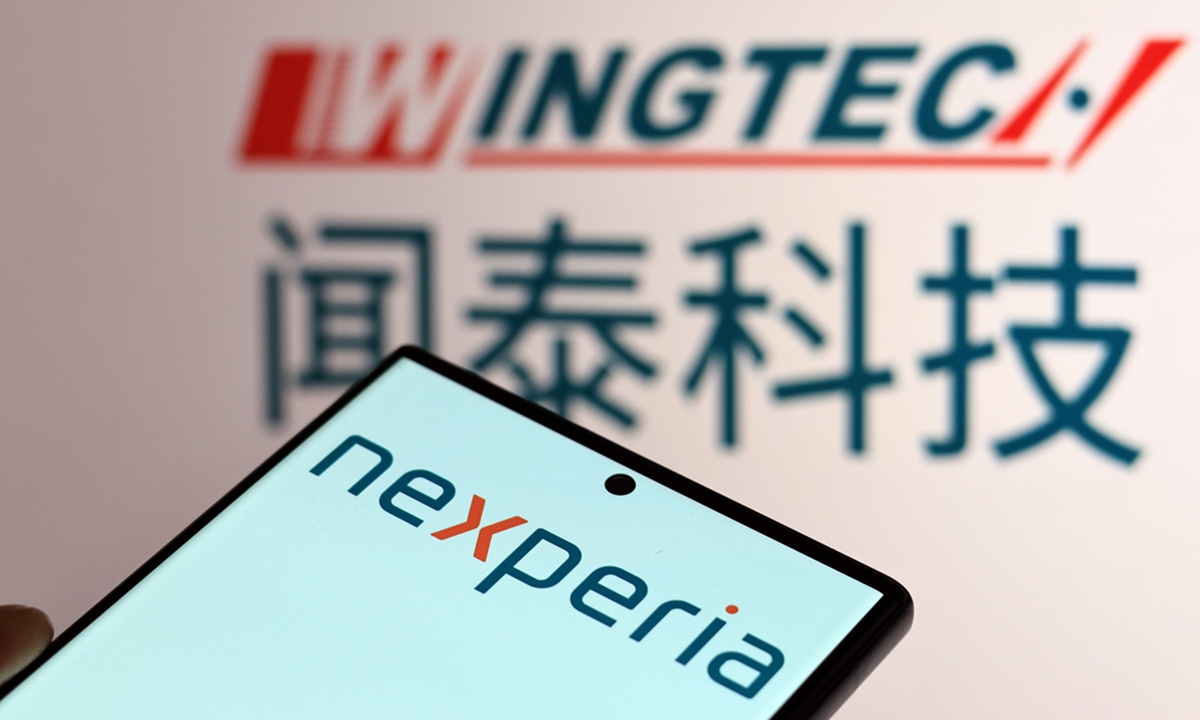
政府新闻
荷兰态度的转变有望影响整个欧洲 2025-11-20
 Dutch Economic Affairs Minister Micky Adriaansens announced on Wednesday the suspension of the administrative intervention targeting Nexperia. The minister described the move as "a gesture of goodwill" and pledged to continue "constructive dialogue" with the Chinese government in the next period.
Dutch Economic Affairs Minister Micky Adriaansens announced on Wednesday the suspension of the administrative intervention targeting Nexperia. The minister described the move as "a gesture of goodwill" and pledged to continue "constructive dialogue" with the Chinese government in the next period. Later the same day, China's Ministry of Commerce responded, welcoming the Dutch decision to suspend the administrative order. China regards this as a first step in the right direction toward properly resolving the issue, but noted that there is still a gap from addressing the root cause of the global semiconductor supply chain disruption - namely, the full revocation of the administrative order. China hopes that the Netherlands will continue to demonstrate a sincere willingness to cooperate and put forward genuinely constructive solutions.
On September 30, the Dutch government cited "national security concerns" when it froze China's Wingtech Technology's control over Nexperia for one year. The move sent shockwaves through the global automotive supply chain, creating a chip shortage that affected automakers in the US, Europe, and Japan, with production lines of some vehicle models temporarily shutting down.
The latest statement from the Netherlands indicates that the Dutch government is returning control of Nexperia to the Chinese company. This reflects a return to rational decision-making under real-world pressures. It also sends a rare positive signal to the global supply chain.
This incident offers three lessons for the Dutch government. First, "national security" is not an all-purpose shield. In recent years, some Western countries have frequently used "national security" as a pretext to impose restrictions on Chinese companies. But in the Nexperia case, this unreasonable move backfired - the administrative takeover directly disrupted the supply chain, and the strong pushback from industry far exceeded the Dutch government's estimation. The Netherlands realized that if it continued to force the takeover, it would face enormous short-term economic costs and suffer even greater damage to its national credibility in the long run.
Second, it is essential to respect the reality that "technology chain cannot be decoupled." Nexperia is one of the world's most important suppliers of foundation chips, operating under a tightly integrated model of "European design + Chinese packaging and testing." Any attempt to forcibly dismantle this industrial structure through administrative means would only inflict greater harm on the Netherlands itself and the industrial chain that relies on these products.
Finally, using political tools to interfere with normal economic cooperation is proven to be a mistake. In recent years, the Netherlands has faced enormous external pressure over its China-related technology policies. The Nexperia case shows that excessive politicization not only deprives Dutch companies of their markets but can also leave the Netherlands vulnerable along the supply chain.
The Dutch decision to suspend intervention in Nexperia is both a pragmatic recognition of reality and a reflection on "over-securitization." However, the suspension of intervention does not mean the dispute is fully resolved, and friction may still recur in phases. According to the latest statement from China's Ministry of Commerce, both sides have agreed to eliminate administrative intervention and support enterprises in resolving internal disputes through consultation in accordance with the law, which will not only protect investors' legitimate rights but also create better conditions for restoring security and stability of the global semiconductor industry. From this, it is clear that, under the current circumstances, the likelihood of systemic escalation has significantly decreased.
The impact of the Nexperia case goes far beyond the resolution of a cross-border corporate dispute. Its positive implications may unfold on four levels:
First, supply chain governance may shift from "politicization" back to "professionalization." Facts have proven that foundation chips are not as scarce as high-end lithography machines; they are the "blood" of global automotive, appliances, and industrial systems. The Dutch suspension signals that industry logic is beginning to outweigh political impulses.
Second, Europe may deepen its reflection on the "exaggeration of risk." The Dutch move could become a symbolic moment prompting policy reassessment within the EU. It is hoped that more governments and companies will realize that over-labeling China only causes them to lose both market and initiative.
Third, China and Europe may define clearer boundaries between cooperation and competition in semiconductors. The case shows that in the foundational chip industrial chain, the two sides still have vast and irreplaceable room for cooperation.
Fourth, the global industrial chain may gain a rare "positive variable." In a period of "excessive tension" in the global industrial chain, any step toward de-escalation can have an amplified effect. The Dutch suspension also offers other countries a "non-confrontational option" for handling similar disputes.
In short, the Dutch suspension of intervention in Nexperia may appear to be a technical or procedural administrative decision, but it is in fact a highly symbolic policy shift. In an era of rising geopolitical tension and emerging economic trust deficit, any country willing to hit the brakes and return to dialogue deserves recognition. In the "semiconductor age," no country can achieve "security" alone; only with stable supply chains can the global economy attain real security. This is not about winners or losers - the world needs more rational decision-makers.
Source: Global Times

